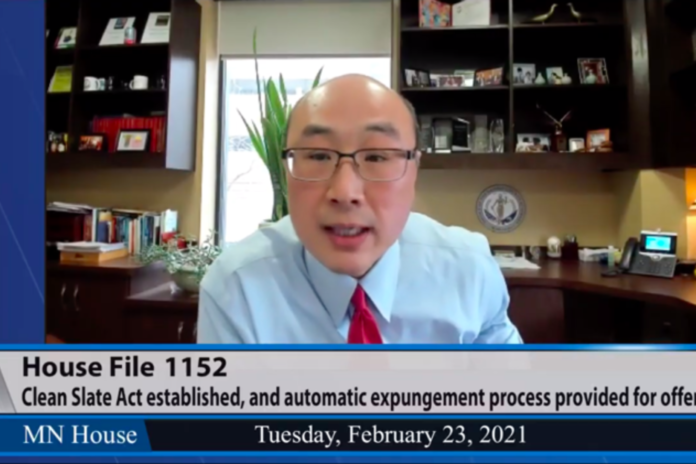(The Center Square) — On Tuesday, the House Public Safety and Criminal Justice Reform Finance and Policy Committee heard testimony on HF 1152.
The “Clean Slate” legislation would, if enacted, provide an automatic expungement process for some offenders after a certain period of time.
Rep. Jamie Long, DFL-Minneapolis, said the package aims to give those incarcerated a path to redemption.
“Too often, having a criminal record severely limits an individual’s opportunity to find jobs, housing or education,” Long said.
The bill aims to enact automatic expungements for some crimes. That means a person’s record would be sealed to employers, colleges, and landlords but not law enforcement.
Long said one in four Minnesotans have a criminal record, 90% of employers conduct background checks, 80% of landlords conduct background checks, and 60% of colleges conduct background checks.
A person is eligible for expungement upon successful completion of a diversion program or a stay of adjudication, and if they haven’t been charged with a new crime for one year immediately following program completion.
There are many felony and misdemeanor crimes that aren’t able to be expunged under the bill, mostly revolving around violent crime, criminal sexual conduct, and controlled substances in the fifth degree.
The waiting period before eligibility for expungement varies on the crime committed. Those with a petty misdemeanor must wait two years; a gross misdemeanor must wait four years; and an eligible felony must wait five years.
John Choi, the Ramsey County attorney, supported the bill.
“With the proliferation of records, it’s difficult for people to escape the collateral consequences of criminal convictions,” Choi said. “It’s been a barrier to a whole host of things. As county attorneys across the state, we realized we have to stop punishing people once they have done everything that we have asked them to do.”
University of Michigan law school research concluded people who receive expungements see a 23% increase in income within a year.
Criminal justice reform has swept across several states including Pennsylvania, Utah, and Michigan in the past few years as states aim to reduce the taxpayer and social costs of incarceration.
Jonathan Weinhagen, the president of the Minneapolis Regional Chamber of Commerce representing 2,300 employers, said the bill would help bridge a worker shortage.
“We believe this legislation will provide a pathway for us to fill this void. Unfortunately, there are far too many barriers for individuals with criminal records who seek to better their lives but face barriers in housing, employment, and education,” Weinhagen said.
The bill doesn’t have a taxpayer cost estimate yet, and it’s not retroactive. If enacted into law, the bill would activate on August 1, 2021. Lawmakers laid the bill over to continue work on the bill.














